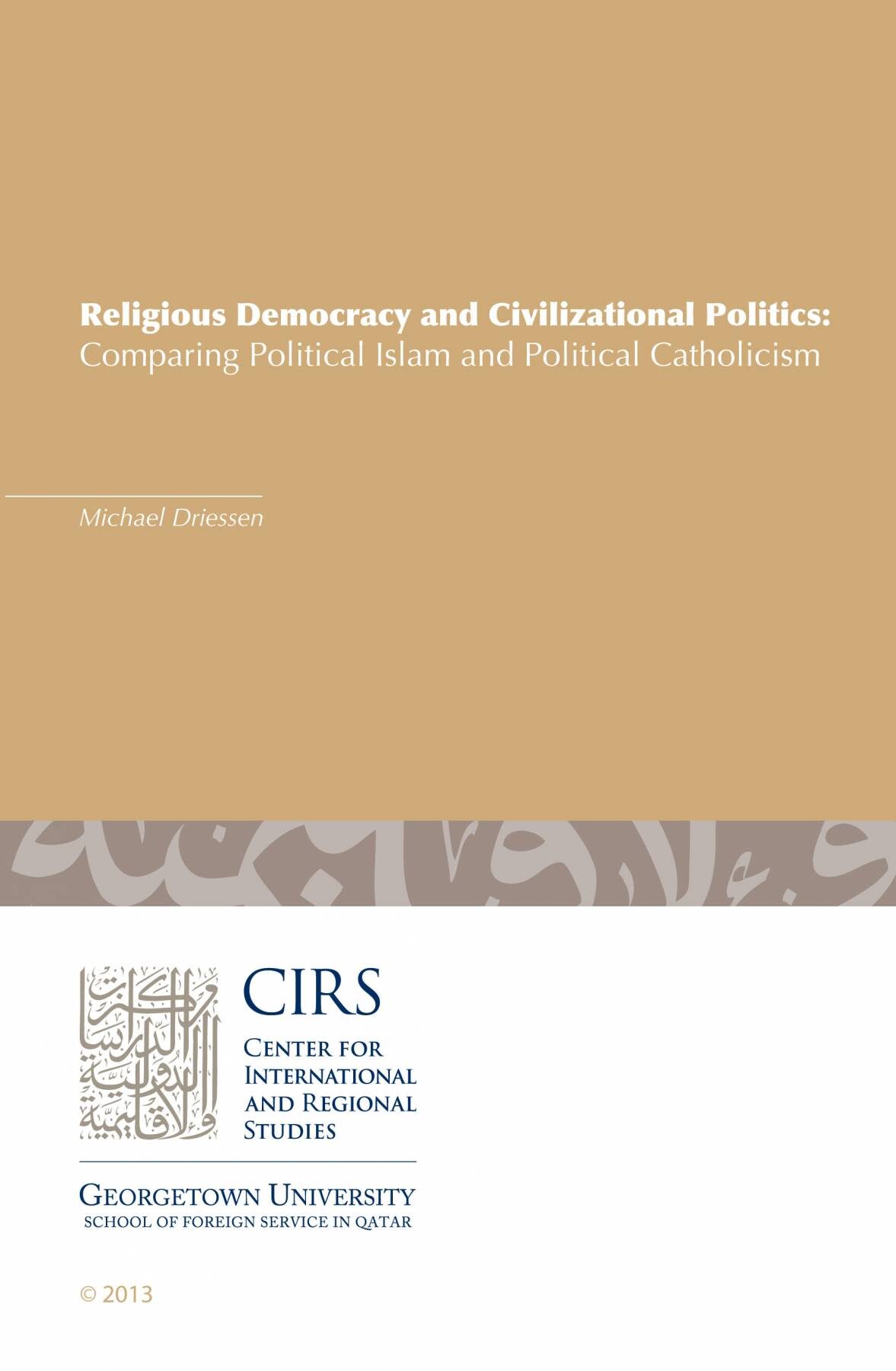Religious Democracy and Civilizational Politics: Comparing Political Islam and Political Catholicism

To cite this publication: Michael Driessen, “Religious Democracy and Civilizational Politics: Comparing Political Islam and Political Catholicism,” CIRS Occasional Paper no. 12 (Doha, Qatar: Center for International and Regional Studies, 2013).
Much of the recent literature on the evolution of political Islam in the Middle East and North Africa has debated the extent to which Islamist political parties have become “secularized” in their political goals and rhetoric. In these studies, a comparison between the political secularization of Islamism and Christian Democracy is often alluded to, but rarely explored in depth. The two political religious movements share much in common with regards to their historical encounter with political liberalism and their intuitions about an ideal religious society. An uncritical comparison, however, obscures significant differences in the relationship of either movement to democratic institutions, traditional sources of religious authority, and the religious citizens of their nations. This paper qualifies the historical, institutional, and theological similarities of political Islam and political Catholicism. In doing so, it emphasizes the importance of the legacies of Catholic Christendom and Muslim Dar al-Islam as transnational, pre-Westphalian religious political orders and the idea of religious authority found in either. After articulating these bases of comparison, the paper considers how these religious legacies remain present in the transition to Christian or Muslim Democracies by exploring the rhetoric of Catholic civilization or Muslim civilization found in Pope Pius XII and Rachid Ghannouchi’s discourses on democracy.